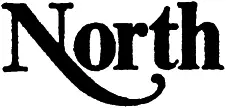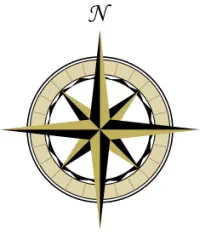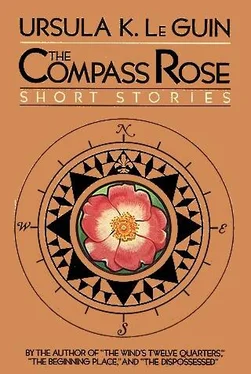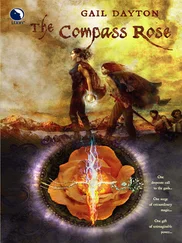At a quarter to six there was a tremendous noise and a subsequent absolute silence. As Eduard picked himself up from the floor of the compartment where for some reason he had arrived, the young man kicked him in the shoulder. “Watch that!” Eduard said furiously, and retrieved his briefcase, which had also slid across the floor. There was now a strange, thin commotion of voices in the corridor. “Oh, oh, oh, oh,” the young woman was saying in a silly voice. The commotion grew to a hubbub like that of an audience at intermission, both inside the car and outside along the tracks, shouts, exclamations, descriptions, comparisons, complaints, as it became clear that the engine had hit a hay truck stalled at a crossing, and that though nobody was hurt except for the truck driver, who had been killed, the engine had derailed and there was going to be a delay while they brought a relief engine down from Brailava. Another break, a dash not a period; non-arrival. Eduard walked up and down the tracks a while in the late long sunlight. It was almost seven when a relief engine arrived, from the south not the north, and pulled the train back to a siding at the local station called Isestno, which was not even mentioned on the Krasnoy-Brailava schedule of the Northern Line; and there it waited, while night fell and the rain came on, until the tracks were mended and the relief engine from Brailava came and hauled it on in, arriving at Sumeny Station at half past ten.
There had been nothing whatever to eat on the train and no vendors at mournful Isestno siding, but Eduard did not feel hungry as he walked under the bright cavernous dome of Sumeny, carrying the briefcase which was all he had brought. Now that he was off the train at last, he felt shaken. He had planned to arrive at half past six, find a hotel near the station, have dinner, but now he did not want to stay up and eat out among strangers, he wanted to go home. Other men hurried past him through the high doors into the rainy night
“Taxi?”
“All right,” he said.
“Where to, sir?”
“Fourteen Kamenny Street.”
“That’ll be up Underhill,” the taxi driver said, confirming Eduard’s memory of the name of the district and of the dark-blue crags hunched over a singing man, a man under a hill, and took off, doors and smeared windows rattling. It was dark in the cab and the smell was comfortable. Eduard roused himself, confused, almost from sleep, and sank back into it, almost.
“Fourteen, was it?”
“Right.”
“This one, looks like. There’s Twelve.”
He could see no street number. There was a house; there was rain, trees, darkness. He paid the driver, who said good night to him in the dry, civil, Northern voice.
Three stone steps, flanked by shrubs and some kind of iron fence or ¿file; “14” over the rather ornate wooden doorframe. A strange city, a strange street, whose house? The first of the twin keys fit the lock. He opened the door, looked in, took a couple of steps in, but left the door ajar behind him, to be certain of escape.
Pitch dark; dry; cool. Sound of rain above on high roofs. No other sound.
The light switch came under his hand to the right of the door. He felt that he should say, “I’m here.” To whom? He turned on the light.
The hall was much smaller than it had seemed in darkness. He had, he now realised, felt himself to be in an almost limitless space, but it was only the quiet shabby front hall of an old house on a rainy night. The strip of carpet on the handsome black and grey tiles was worn and not very clean. Somebody’s hat, his great-uncle’s hat, an old felt, lay forlorn on a small sideboard. The light fixture was of yellowish cloudy glass.
The door was still ajar behind him. He returned and closed it, and automatically put the key ring into his trousers pocket.
Stairs went up to the left. The hall went on past them: a door to the right and an end door, both shut. The sitting room would be that one to the right, the end one would lead back to the kitchen. There was a dining room, maybe on the way to the kitchen; it was in a dark dining room that he had heard the loud old voices. He should look into the rooms, but he was tired. He had been sleeping very badly for several nights, and the train trip with its shock and unfelt death and long delay had left him shaky. The hall was all right, the old hat was all right, but he could not take much more. The yellowish light illuminated the stairs as well as the hall. He went up the stairs, his right hand on the narrow heavily varnished railing. At the top he turned and went down the hall to the end door, opened it, and turned on the light He did not know why he chose that door, or whether he had been upstairs in the house as a child. This was the front bedroom, probably the largest. It might be the room his great-uncle had slept in, perhaps died in, unless he had died in hospital, or it might have been the grandfather’s room, or have stood unused for thirty years. It was clean and sparse, bed, table, chair, two windows, fireplace. The bed was made, tight and neat, an old blue coverlet pulled tight. The overhead light in its glass shade was dim, and there was no lamp.
Eduard put down his briefcase by the bed.
The washroom was at the other end of the hall. He thought at first the water had been cut off, for the pipe groaned when he turned the faucet, but then it spat rust, belched red, and ran clear. He was thirsty. He drank from the faucet. The water was rusty and cold and tasted of the north.
There was an old bookcase with glassed shelves in the hall, and he stopped before it for a minute, but the light was faint and the titles of the books meant nothing. He could not read. He went into the front bedroom and turned back the blue coverlet. The bed was made up with heavy linen sheets and a dark blanket. He took off his clothes, hung his coat and trousers in the empty closet, turned off the light, got into the cold bed in the dark room made tremulous by a distant street lamp shining through rain or the shadows of leaves; he stretched out and laid his head back on the hard pillow, and slept.
He woke in sunlit morning, lying on his side, looking at the swords, cavalry sabres, hung crossed on the chimneypiece.
They were tools, he thought, expressing purpose as simply as a needle or a hammer, their purpose, their reason or meaning, being death; they were made to kill men with; the slightly curved and still unpolished blades were death, were in fact his own death, which he saw with clarity and relaxation; for as his eyes were occupied with looking at that his mind was wandering to the other rooms, which he had not seen last night, the rooms whose doors, for which he had the keys, would lead to his life, his request for a transfer to the Bureau here in Brailava, the wild cherry flowering in the mountains in March, his second marriage, all that, but for the moment enough, this room, the swords, the sunlight; he had arrived.
North

SQ

I think what Dr. Speakie has done is wonderful. He is a wonderful man. I believe that. I believe that people need beliefs. If I didn’t have my belief I really don’t know what would happen.
And if Dr. Speakie hadn’t truly believed in his work he couldn’t possibly have done what he did. Where would he have found the courage? What he did proves his genuine sincerity.
There was a time when a lot of people tried to cast doubts on him. They said he was seeking power. That was never true. From the very beginning all he wanted was to help people and make a better world. The people who called him a power-seeker and a dictator were just the same ones who used to say that Hitler was insane and Nixon was insane and all the world leaders were insane and the arms race was insane and our misuse of natural resources was insane and the whole world civilisation was insane and suicidal. They were always saying that. And they said it about Dr. Speakie. But he stopped all that insanity, didn’t he? So he was right all along, and he was right to believe in his beliefs.
Читать дальше






